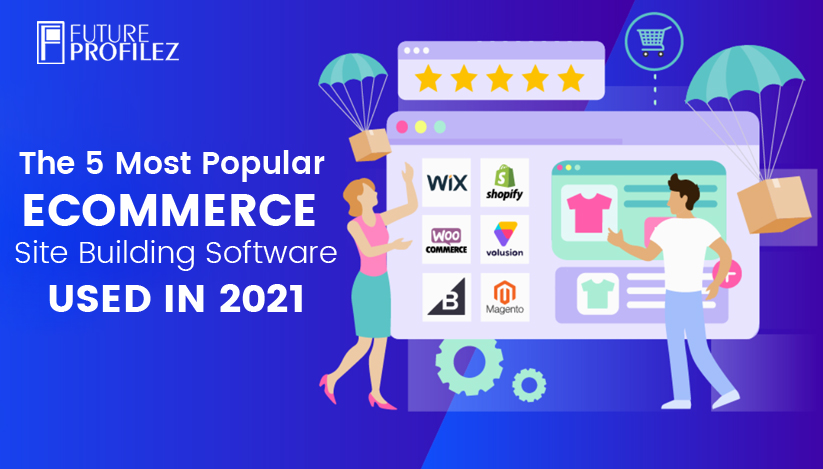Best SEO Extensions for Your Magento E-commerce Store
- 156359 Views
- 4
 SEO Brochure
SEO Brochure  Wordpress Brochure
Wordpress Brochure  PHP Brochure
PHP Brochure  Magento Brochure
Magento Brochure  Redesign Brochure
Redesign Brochure  Shopify Brochure
Shopify Brochure 
Blog
 1062
1062  0 Comments
0 Comments

If you own a business and are a fan of continuous growth (which we’d assume you would be), then chances are you might be enticed by the prospect of owning an eCommerce business. Taking your business online is a challenging task, but when done right, can open new and highly promising opportunities to unforeseen brand growth and that’s where choosing the best eCommerce store development software becomes such a major necessity. To help you with your decision, below we are listing the 5 best and most popular eCommerce Site Development Tools Used in 2021
Second to only Shopify in terms of its mainstream popularity, Magento is perhaps the most “all-rounder” choice suiting the business needs of companies of all scales. Magento is open-source, meaning it has a fully integrated store management functionality, assisting vendors and customers at every step in making the purchasing and selling of goods a hassle-free process.
Your Magento store can be coupled with a host of plugins (either free or 3rd-party paid), and allows you to create a fully unique shopping experience that perfectly matches your brand vision. whilst a number of additional perks (including first-rate payment gateway integration, order tracking, product description, custom theme & extensions, etc) simply make it the fastest growing eCommerce platform in the whole IT sector today.
Ask any regular online buyer and chances are the first name you hear from them at the very beginning of an eCommerce conversation is “Shopify”. That’s because this industrial giant offers unmatched online support and is used to create some of the most complex, and dynamic business stores that you can find on the internet today. Although the platform today has become somwhat cluttered, Shopify’s premium features still allow you an unparalleled range of design tools and other amenities (extensions, themes, features, etc). Most websites are powered through Shopify, so you know that they must be doing something right.
In order to sell your products, displaying them in an artistic manner, as well as offering the luxury of multi-lingual support is highly recommended, and thankfully, 3d-cart takes care of that for you. Relatively new to the eCommerce development sector, the software has turned out to be a smash-hit success amongst small-scaled organizations due to its cost-effective procedure and hassle-free self-hosting features, allowing vendors to make a visually attractive store at an affordable price. The software premium features are also pocket-friendly & flexible.
Open-source software is highly preferred by coders as it’s more dynamic and cost-friendly amongst other things, and Opencart perfectly fits the bill. The platform can be used as an additional WordPress plugin with an easy-to-use interface, and clutter-free backend development syntax. With thousands of customizable themes and free-to-use plugins, the software does have room for innovative store designs, but if there is one qualm with the platform, it’s that the online support is not as extensive or as readily available as other alternatives listed here.
Also, Opencart functionality comes built-in with many CMS software, making it easy for a beginner to create a basic eCommerce store on his/her own. Cascading Style Sheets (CSS) is the core technology used here, which can be modified in the admin by the developer with ease.
Not many people outside of the IT field are aware of the fact that while WordPress is a tremendous blogging platform, WordPress.org is one of the most popular content management systems (CMS) used for creating eCommerce sites for all-scaled businesses as well. Since a majority of online websites are powered by WordPress, and Woocommerce being highly compatible with that, simply means that you can use this site-building software to boost the functionality of the majority of websites. Woocommerce is a bit more basic in its approach (compared to Shopify, Magento, etc), but should have enough features to create a simple yet elegant shopping store for a small to the mid-scale firm.
Every eCommerce software has its list of pros and cons and the right option is contingent upon various elements such as a company’s scale, business model, store requirements, target audience, etc. But one thing is for sure, choosing the best eCommerce Development Company India helps you find the most efficient solution to your needs and incorporate every useful detail that helps attract viewers to your store.
Copyright ® 2025 Company All Rights Reserved